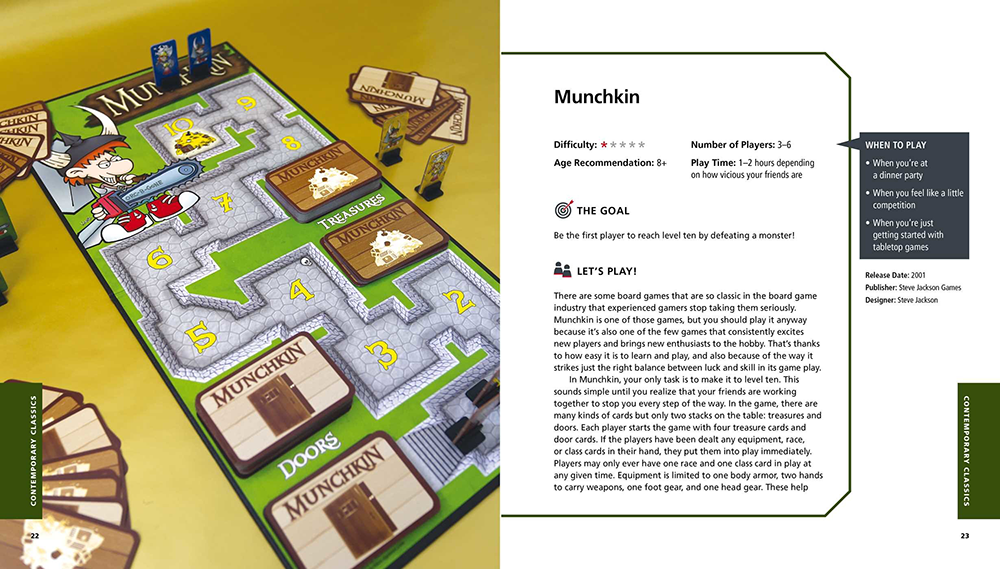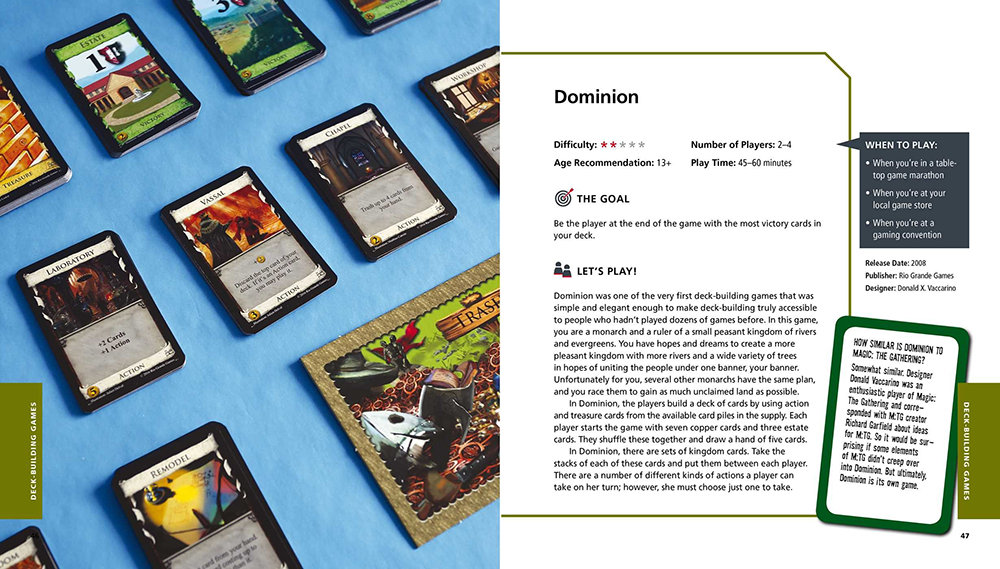This book is the 'welcome mat' for tabletop gaming.
Tabletop gaming can be an obtuse hobby. There are an uncountable number of games (many of which cost as much or more than a full-priced video game) and often, you need the right people to enjoy them.
So how do you choose which board game to play if you’re new to the hobby? What does all the jargon mean, when you don’t know the difference between a deck-builder and a worker placement game? How can you determine what might be a good fit for the players you want to gather around the table?
A new book by Bebo (who assisted us with our 2018 Holiday Tabletop Guide), seeks to provide a welcome mat to the tabletop gaming world. The Everything Tabletop Games Book starts with the nuts-and-bolts of tabletop gaming, running down a list of 20 scenarios in which you might play games. This list includes key phrases (and definitions) like, “When you’re just getting started with tabletop games,” “When it’s time for a little competition,” and “When you want something fun and easy.”

Beyond the foundational information, The Everything Tabletop Games Book is broken into chapters encompassing different game genres. Each section includes four to nine different games, and every entry includes three of the twenty labels to help explain the best setting to bring that title to the table.
For instance, Clank! (we reviewed Clank! In Space) is a game that’s appropriate for “when it’s time for a little competition,” “when you want something challenging,” and “when you’re at your local game store.” Another SuperParent favorite, Pantone (featured in our 2018 Holiday Tabletop Guide), is appropriate for “when you’re in a large group,” “when you want something fun and easy,” and “when you’re at a dinner party.”
The genre-based chapters start with an explanation of each. Deck-building games have taken on a number of forms since Donald Vaccarino’s Dominion helped popularize the genre, and the six entries in that chapter give players great options to begin with and more complex entries for later. Hidden role games is another genre that touches a wide range of implementations, from One Night Ultimate Werewolf to the excellent tabletop adaptation of Syfy’s Battlestar Galactica.

Each of the more than 100 games included is formatted for ease of understanding, including a difficulty assessment, recommended age range, number of players, play time, and the goal of the game. Bebo’s work shines in the brief synopsis of each game, though.
In the two or three pages allotted to each entry, readers are given a brief rundown of play, tips and hints (some of which might otherwise be overlooked by first-time players), and fun facts. Given Bebo’s extensive work in the space, she’s also incorporated fun anecdotes about some of the games that provide some background information on their design and development.
On the surface, The Everything Tabletop Games Book is a well-written and expertly curated assemblage of excellent tabletop games akin to 1001 Movies You Must See Before You Die. Bebo has put together something more than a reference text, though. It’s a warm welcome for those uninitiated to the world of tabletop games. The gorgeous layout and smart organization make it a worthwhile tome for anyone already a fan of the hobby.
It’s my hope that this is merely the first volume in a series that will grow as time goes on and new genres take root. The Everything Tabletop Games Book is a brilliant collection of interesting and enticing games. It’s a must-have for new fans and established lovers of tabletop gaming.
Disclosure: Simon & Schuster provided SuperParent with a copy of The Everything Tabletop Games Book for coverage purposes.